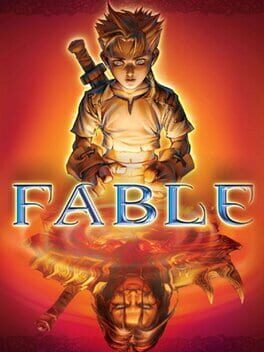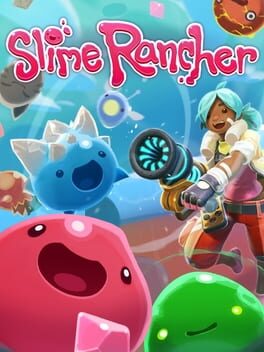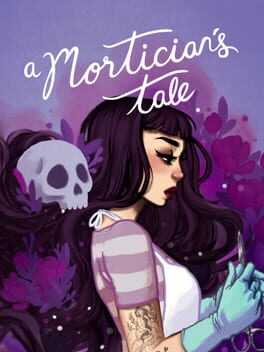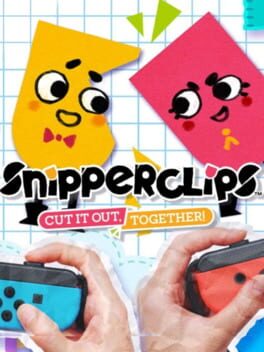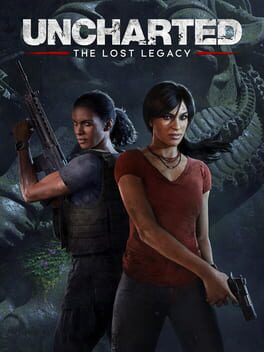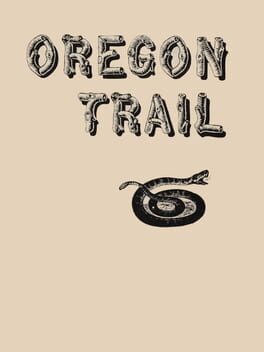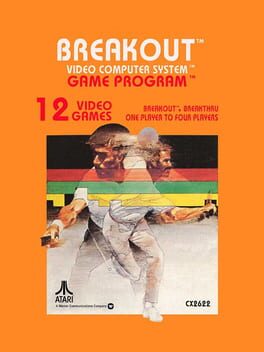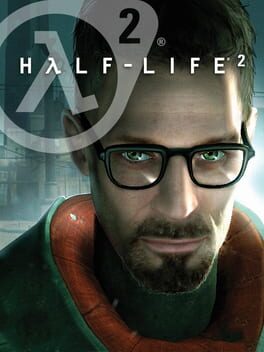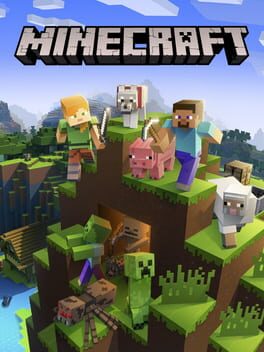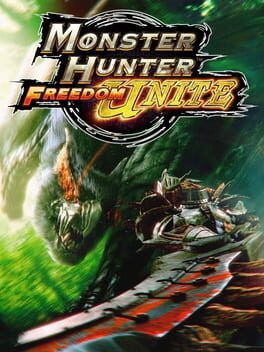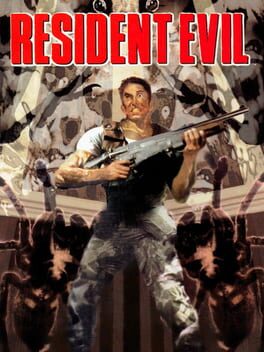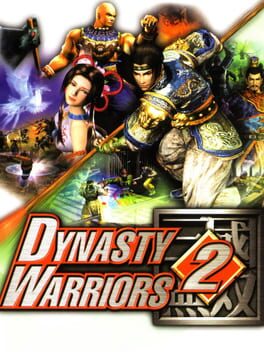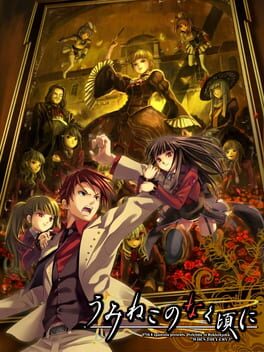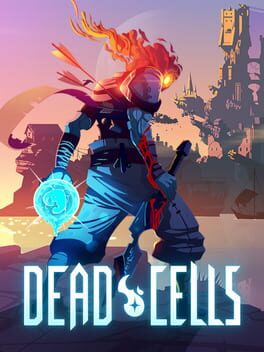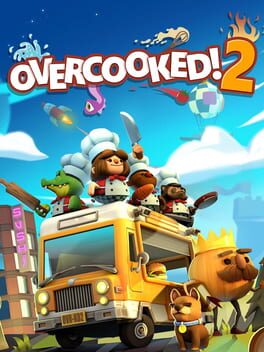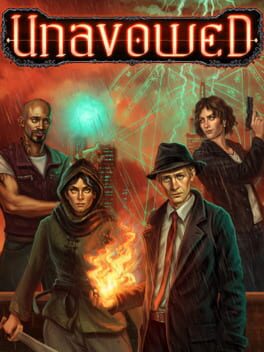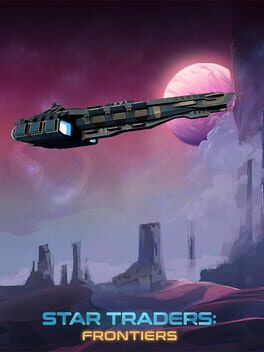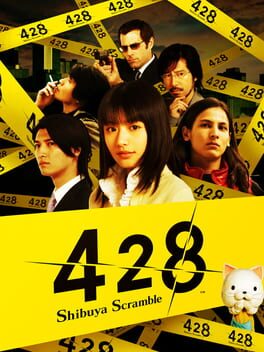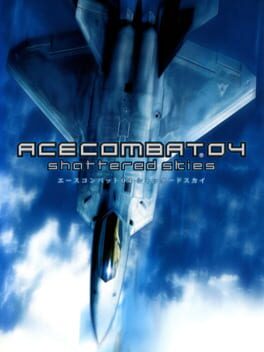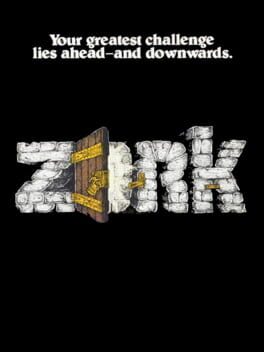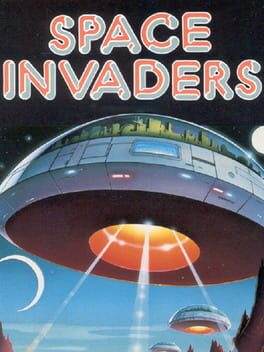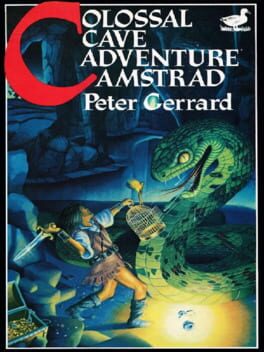Tarnum
4 reviews liked by Tarnum
Fable
2004
Although it may feel clunky and antiquated by todays standards, the original Fable remains a landmark of fantasy RPGs as it delivers one of the purest and most charming fairytale stories to ever have been put to game. Featuring memorable music, characters and locations, all interwoven perfectly by a fantastically witty and whimsical script that soon came to define the whole series.
My only major gripe is with the combat and how it makes the game a slog to get through and near unplayable if it were not for the spells. Given the tutorials during the prologue, it is clear Lionhead had ambitions to employ 3 distinct classes for players to experiment with, but unfortunately when it comes to combat, the game seems to be forcefully nudging you towards a spell/sword playstyle to avoid making half the game torturous with its auto-blocking enemies with nearly instantaneous knock-down attacks.
And although simplistic now, all the RPG mechanics simmered throughout, such as marriage, pub games, drinking, and buying properties, go a long way to making the game feel alive and breathing, and although these were all fleshed out further in later entries, it is great to see where it all started. This game may feel old, but it still feels ahead of its time for 2004.
My favourite thing about Fable has to be all the funny little item descriptions and headstone engravings though, they never fail to make me laugh.
My only major gripe is with the combat and how it makes the game a slog to get through and near unplayable if it were not for the spells. Given the tutorials during the prologue, it is clear Lionhead had ambitions to employ 3 distinct classes for players to experiment with, but unfortunately when it comes to combat, the game seems to be forcefully nudging you towards a spell/sword playstyle to avoid making half the game torturous with its auto-blocking enemies with nearly instantaneous knock-down attacks.
And although simplistic now, all the RPG mechanics simmered throughout, such as marriage, pub games, drinking, and buying properties, go a long way to making the game feel alive and breathing, and although these were all fleshed out further in later entries, it is great to see where it all started. This game may feel old, but it still feels ahead of its time for 2004.
My favourite thing about Fable has to be all the funny little item descriptions and headstone engravings though, they never fail to make me laugh.
Fable
2004
Fable is a relic of a begotten time, a game that I'm not sure would be as successful if introduced now yet extremely entertaining in 2004. In a rich and quirky world filled with the legendary British style of humour, you become a hero (of sorts) in a land where things have clearly gone awry. Questions and occurrences that gauge your morality are filled all throughout Fable which sees your character go from child to adult, how will you respond to the threat facing the land?
Slime Rancher
2016
This was just delightful, an adorable and super addicting farming sim starring a wide variety of slimes. This is the kind of game that you sit down to play for an hour and then you look up and your entire day is gone.
I loved discovering and taking care of all of the different slimes and plants, growing my farm, earning money, the quicksilver slime race minigame, experimenting with slime science, exploring the world and finding keys to open up new areas, it's all done so unbelievably well. The highest praise I can give this game is that it feels like something Nintendo would make.
It's not all perfect though, unfortunately. Fast travel is annoyingly limited, resulting in long walks back and forth from places. The final area you unlock is pretty barren and disappointing. And this might be personal opinion but the story did nothing for me, I think this is a situation where voice acting could've made it a bit more interesting. These are all minor gripes though.
If you're a fan of games like Animal Crossing, Stardew Valley or Viva Pinata, you owe it to yourself to play this game. Don't miss it.
I loved discovering and taking care of all of the different slimes and plants, growing my farm, earning money, the quicksilver slime race minigame, experimenting with slime science, exploring the world and finding keys to open up new areas, it's all done so unbelievably well. The highest praise I can give this game is that it feels like something Nintendo would make.
It's not all perfect though, unfortunately. Fast travel is annoyingly limited, resulting in long walks back and forth from places. The final area you unlock is pretty barren and disappointing. And this might be personal opinion but the story did nothing for me, I think this is a situation where voice acting could've made it a bit more interesting. These are all minor gripes though.
If you're a fan of games like Animal Crossing, Stardew Valley or Viva Pinata, you owe it to yourself to play this game. Don't miss it.
Rain World
2017
If you had a dream for an entirely original game concept, how much would you be willing to compromise your vision for more sales? If it was possible to quantify such a thing, imagine that making it more appealing to the mainstream by 5% would also increase reception and sales by 5%. Would you stick to your guns and create a completely uncompromised game, even if it meant a Metacritic score of 50? Maybe making it just a little easier or a little more direct would be enough, just so you get to the 70 range and a trickle of word-of-mouth sales. It wouldn’t be a best-seller, but if someone was interested enough to buy it, they would be likely to finish the game with a positive experience.
Rain World decided not to compromise even 1%. This game wants to make a statement about nature, and saw the tiniest bit of compromise to make it fair or predictable as antithetical to the message. For starters, you play as a lonely Slugcat, a defenseless rodent trying to locate the rest of its kind in a journey across an industrial zone overtaken by nature. While predators can snap you up in one bite and machines can crush you effortlessly, all you’re able to do is pick up stuff, throw items, climb, and eat. Your journey is a progression from water lock to water lock, hiding each night from a torrential flood of rain which also kills you instantly. To not starve in the middle of the night, you need to have at least four stocks of food, and surviving a night increases your progression meter by one. Filling this meter to a certain level is required to open the doors between the major areas, but dying means the loss of two levels. This means that to progress to a new area, you have to scour for food sources on a time limit while avoiding unpredictable instant-kill predators and any mistake means you have to repeat the process at least two more times. Once you get to a new area, there isn’t always an immediate water lock, so you have to quickly explore and avoid the new predators after spending most of your time just entering the area in the first place. While those are just the basics, it gives a taste of just how brutal the survival in this game is. I quit the game three times before pushing myself to finish it, and even then I wasn’t exactly having fun.
The reason I'm belaboring the point of just how little fun I had in this uncompromising murderscape is twofold: firstly, to let you know what you’re getting into if you do decide to buy it, which you just might when you hear that secondly, all the pain was worth it. It all paid off. The slow reveal of the game’s themes was absolutely magical. The ending was a perfect mesh of story and gameplay satisfaction, where I felt like I accomplished something and really learned something. It’s the most satisfied I’ve ever felt when completing a game in my entire life. It’s probably going to end up in my top ten games of all time. If all this sounds intriguing to you, and you think you can handle the pain, I’ll be cheering for you every step of the way. Stay dry, Slugcat.
Rain World decided not to compromise even 1%. This game wants to make a statement about nature, and saw the tiniest bit of compromise to make it fair or predictable as antithetical to the message. For starters, you play as a lonely Slugcat, a defenseless rodent trying to locate the rest of its kind in a journey across an industrial zone overtaken by nature. While predators can snap you up in one bite and machines can crush you effortlessly, all you’re able to do is pick up stuff, throw items, climb, and eat. Your journey is a progression from water lock to water lock, hiding each night from a torrential flood of rain which also kills you instantly. To not starve in the middle of the night, you need to have at least four stocks of food, and surviving a night increases your progression meter by one. Filling this meter to a certain level is required to open the doors between the major areas, but dying means the loss of two levels. This means that to progress to a new area, you have to scour for food sources on a time limit while avoiding unpredictable instant-kill predators and any mistake means you have to repeat the process at least two more times. Once you get to a new area, there isn’t always an immediate water lock, so you have to quickly explore and avoid the new predators after spending most of your time just entering the area in the first place. While those are just the basics, it gives a taste of just how brutal the survival in this game is. I quit the game three times before pushing myself to finish it, and even then I wasn’t exactly having fun.
The reason I'm belaboring the point of just how little fun I had in this uncompromising murderscape is twofold: firstly, to let you know what you’re getting into if you do decide to buy it, which you just might when you hear that secondly, all the pain was worth it. It all paid off. The slow reveal of the game’s themes was absolutely magical. The ending was a perfect mesh of story and gameplay satisfaction, where I felt like I accomplished something and really learned something. It’s the most satisfied I’ve ever felt when completing a game in my entire life. It’s probably going to end up in my top ten games of all time. If all this sounds intriguing to you, and you think you can handle the pain, I’ll be cheering for you every step of the way. Stay dry, Slugcat.
15 lists liked by Tarnum
by FunkyMuffler |
353 Games
by cyanman777 |
1022 Games
by Alena_03 |
50 Games
by Pangburn |
48 Games
by daniblacksmoke |
123 Games
by chump |
627 Games
by Lawren |
279 Games
